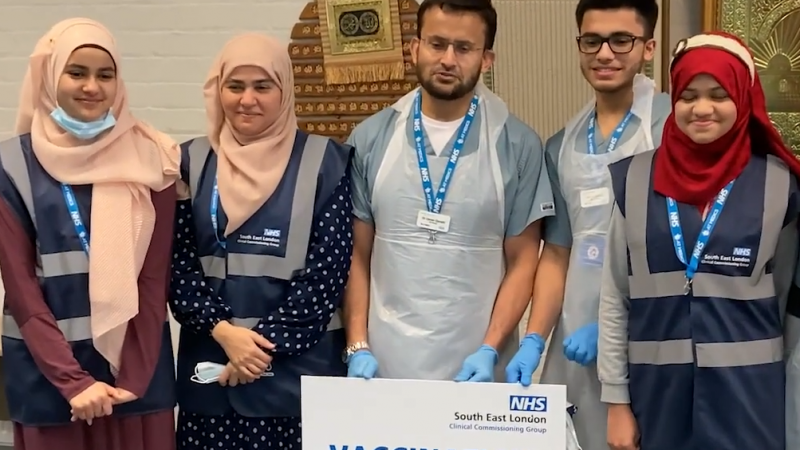The NHS has a long way to go in restoring trust among some minority communities, but the vaccine programme is a strong start, a Department of Health and Social Care adviser writes.

Beauty Dhlamini is a Global Health scholar, currently working as a Policy Advisor in the Department of Health and Social Care.
In the process of the NHS’ largest mass vaccination rollout in its history, we’ve seen a range of new venues being adapted for emergency use as vaccination hubs.
These vaccination hubs, away from the standard GP surgery, include the most valued community assets: churches, mosques, community halls, libraries, and even local parks.
We’ve needed these hubs to be ‘pandemic resilient’, and accessible to people’s needs. At national, regional and local levels the Department of Health and Social Care worked in partnership with local authorities, the voluntary and community sector, local resilience forum, communities, staff and patients to ensure the local implementation plans are tailored to support uptake in all communities.
These have been collaborative efforts, to get vaccination services within a 10-mile radius of specific communities, and to have mobile centres for those in rural areas.
After years of failed inequality inquiries and their subsequent outcomes, this approach to deployment could be the first mode of successful inclusivity in NHS history, and it is helping to address health inequalities.
The repurposing of these community spaces has helped us reimagine how the health service engages with local areas. If the government, the NHS, its local authorities and arm’s length bodies fail to capitalise on this, any gains they may have made in rebuilding community trust and relations could be redundant by the end of this pandemic.
We’re at a crossroads, where ongoing challenges have met opportunity. Is there scope for reusing these venues for everyday use in the future?
The use of community assets – like religious venues and community centres – to deliver key health services, including primary, preventative healthcare could be transformational. This is a once in a generation opportunity to begin correcting previous wrongs, and move to alleviating existing health inequalities identified in the Marmot review, and exploited by Covid-19.
The Covid-19 Marmot review on health inequalities found that ethnic minority groups experienced higher rates of mortality from Covid-19 than white ones – partly the result of “longstanding impacts of discrimination and exclusion associated with systemic racism.” It added: “There is also evidence that the BAME workforce in highly exposed occupations are not being sufficiently protected with PPE and safety measures,” as a Runnymede Trust study last year found.
In the wake of unfolding traumatising events such as Grenfell Fire, in areas populated by underserved, minoritized communities, people need spaces to convene and support one another – without the pressure of a watchful eye to abide by white standards.
We have to accept that clinical spaces, as we have seen in the NHS, are often a site of trauma for underserved communities, due to persisting negative experiences. A recent Kings Fund report found that the rate of women dying in the UK in 2016–18 during or up to one year after pregnancy is more than four times higher among Black women, and almost double among Asian women. It also found that infant mortality rates are generally higher among ethnic minority groups, particularly Black women and those of Pakistani origin.
Minoritized communities struggle to get the non-discriminatory, culturally competent, inclusive healthcare they’re entitled to. They must continuously defend and explain their health concerns where there is an uneven power dynamic. A recent BMJ study found that structural racism and previously unethical research involving some ethnic minority groups, as well as lack of effective public health messages, and barriers to access contributed to vaccine hesitancy among some minoritized groups – but there is significant variation here.
Healthcare has to be truly local. In spaces centring community health, communities can not only talk about their experiences, but connect with each other and heal. The NHS must not let the lessons learned from its community-centred vaccination programme be forgotten.
Beauty works with community and grassroot organisations and co-hosts the renowned podcast, Mind the Health Gap.
Pictured: A vaccination centre at a mosque in Streatham, South London.
To reach hundreds of thousands of new readers and to make the biggest impact we can in the next general election, we need to grow our donor base substantially.
That's why in 2024, we are seeking to generate 150 additional regular donors to support Left Foot Forward's work.
We still need another 124 people to donate to hit the target. You can help. Donate today.



